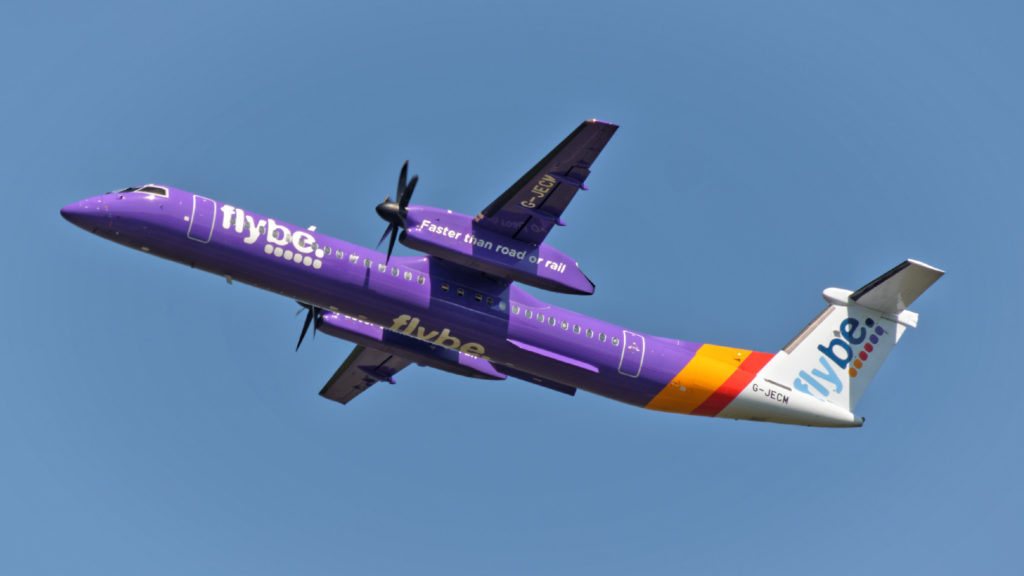Cardiff Airport, which has been heavily reliant on the firm up until now, is suspected to be one of the worst victims of the closure

British company Flybe, one of the largest independent regional airlines in Europe, announced last week that it would be ceasing operations immediately. Since then, it has come to light that over 2,000 jobs are at risk both within the company and with partnered organisations.
Flybe operated almost half of all domestic flights in Britain, including a significant portion of those at Cardiff Airport. On some days, Flybe flights represented the vast majority and this will affect many customers in the surrounding area.
“I go to Paris about four times a year for a combination of work and friends over there, so it was convenient, it was just down the road,” says 38-year-old Sara, a communications consultant and mother. “The airport’s been coming up by leaps and bounds, in terms of having different routes to offer.
“I think the withdrawal of that route, to one of our nearest major European capital cities, not just for me but for businesses who use that route reasonly often as well, it’s just a bit of a blow. It’s cheaper to buy from Bristol, but it’s a convenience of being 20 minutes up the road.

Although concerned about the environmental impact of air travel, Sara explains that alternatives like the Eurostar can be costly and the routes aren’t always ideal. It works better for her when she needs to knuckle down and get some work done but isn’t perfect.
“The flight was a godsend for me for a few years. I was using it a lot. Most people I see on those flights are either going to Euro Disney, we get a lot of French people coming over here for meetings and vice versa – a lot of companies based in Wales or London with clients in Paris.
“I think they need to act quickly, but you can’t help but feel for the airport. If they knew that the airline was in trouble, this is a Treasury issue. Right? The stuff about the passenger duty and that sort of things.
In January, after Flybe had incurred continuous losses, the company’s executives entered talks with the Government. One measure on the table was Flybe deferring its passenger duty tax, an addition to ticket prices. Critics claimed this would negatively impact the environment if scrapped.
“It was already becoming a bit late, and there’s not much the Welsh Government can do. Then you get something like coronavirus, which is hitting all airlines, as well as the wider economy. You can’t plan for that sort of thing, I don’t think, which sped up the end for them.”
Cardiff Airport’s CEO Deb Bowen Rees issued a statement containing the following.
“We are actively talking several airlines about the opportunity that exists in flying to and from South Wales. Given the Flybe news, we will focus on filling the core domestic routes which Flybe serve for the region.”
Flights to Anglesey, Teeside and Aberdeen, she said, would continue with Eastern Airways. After this, Loganair also stepped in to operate flights to Edinburgh. Despite this, there is still a great deal of uncertainty regarding the future of other significant links.

“I do appreciate how distressing this news is and the shock and numbness that you will be feeling,” said Flybe CEO Mark Anderson in an email to staff. “The coronavirus has impacted both our shareholders and ourselves and has put additional pressure on an already difficult situation.”
However, apologies notwithstanding, criticism has come in from across the political world. Plaid Cymru leader Adam Price called the news “extremely concerning” for people in Cardiff whose jobs are now at risk. He also promised to seek answers from the Welsh Government and Westminster.
Similarly, Welsh Liberal Democrats leader Jane Dodds stated her concern for job losses and the future of Cardiff Airport: “My heart goes out to their staff who have faced months of uncertainty.”
